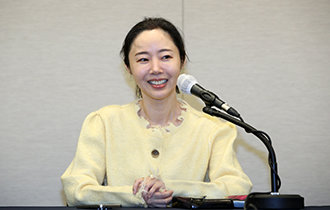Korean exporters likely to enjoy enhanced price competitiveness
Korean exporters likely to enjoy enhanced price competitiveness
Posted May. 16, 2024 08:26,
Updated May. 16, 2024 08:26
South Korean goods are expected to gain price competitiveness as the U.S. government has sharply increased tariffs on Chinese products. On the other hand, decreases in Chinese exports can drive down South Korea’s export of intermediate goods and lead surplus products from China to end up in the South Korean market. After all, the recent shift in U.S. tariff policy can be a double-edged sword for the South Korean economy.
Chairman Yoon Jin-shik of the Korea International Trade Association (KITA) projected in a press conference with correspondents at the organization’s branch in Washington, D.C. on Tuesday (local time) that the increase in U.S. tariffs may less likely put South Korean firms at a disadvantage, referring to internal opinions he asked for after getting briefed on the news.
It is interpreted that U.S. consumers would turn away from Chinese goods affected by higher tariffs and possibly choose to buy South Korean products. On that day, the Office of the United States Trade Representative (USTR) issued an assessment report on Section 301 of the Trade Act of 1974, writing that imports from China dropped by an annualized average of 20.5 percent. Still, South Korean imports rose 1.9 percent on an annual average over four years in the semiconductor industry after the U.S. imposed tariffs on Chinese goods in 2018.
However, some are concerned that the U.S. tariff policy toward China can hold back South Korean exporters. Jo Sang-hyeon, head of KITA’s Institute for International Trade, commented that South Korea might see exports of intermediate goods for Chinese batteries and steel products stagnate or even decrease.
Others point out that a large volume of low-priced Chinese products would end up flowing into South Korea, not exporting to the U.S. market. Professor “Chinese goods can be overproduced, later being purchased forcedly by South Korean buyers. This will harm domestic business activities,” said Prof. Shim Sang-ryeol of international trade at Kwangwoon University. “Such low-priced goods, once exported to promising markets including Southeast Asian countries, will pose a mid-and long-term risk to South Korean exporters.”
세종=조응형기자 yesbro@donga.com







